Which variety of sweetpotato is best for you? EVALUATING sweetpotato with farmers in Malawi
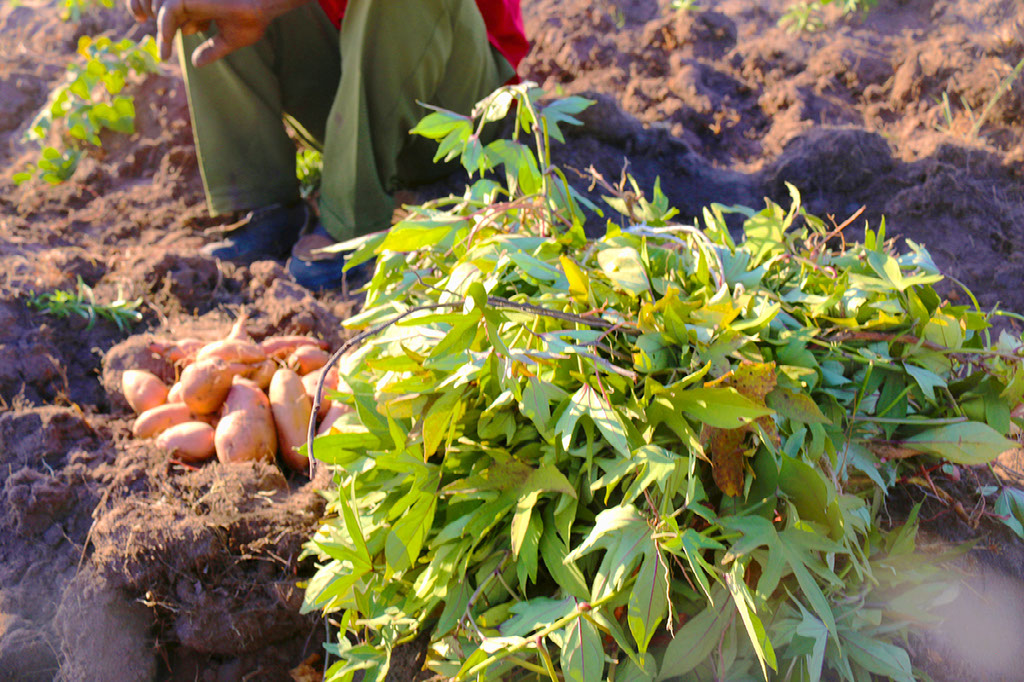
High yielding. Pest resistant. Sweet. Starchy. Just a few of the preferences that farmers in Malawi have about orange fleshed sweetpotato. To better understand these preferences and understand farmer needs the International Potato Center carries out farmer participatory evaluation using an approach called Mother & Baby.
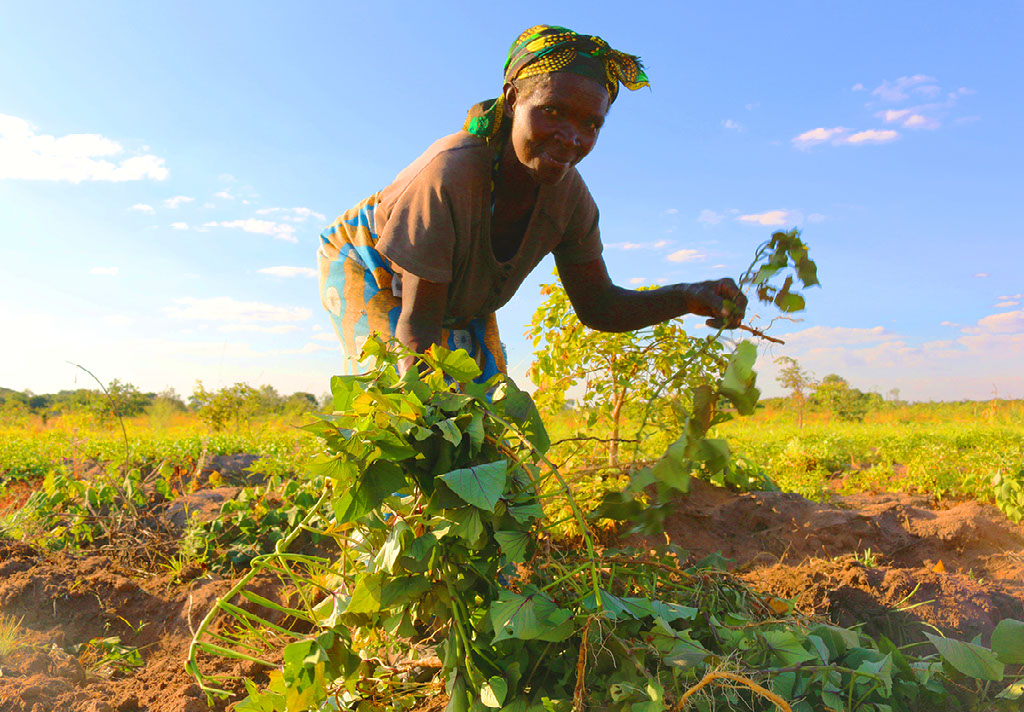
So what does this mean and why is it the preferred approach in Malawi?
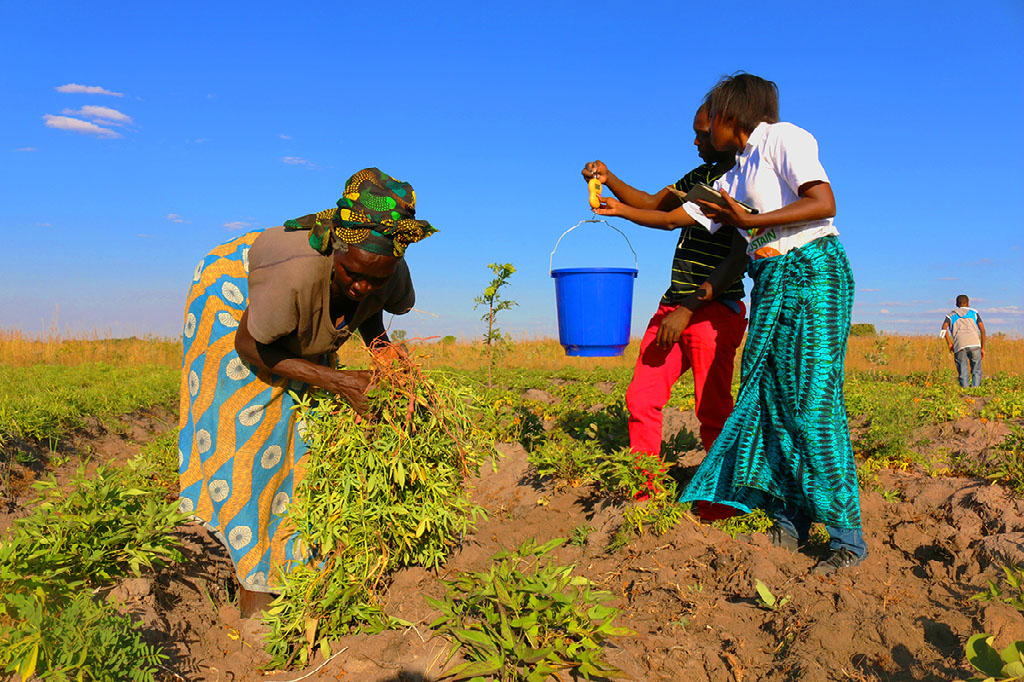
A little sweetpotato history to get us started... The Malawi Department of Agriculture Research Services (DARS), with support from the International Potato Center (CIP), AGRA and others, has been developing, evaluating and releasing new and promising sweetpotato varieties for the past three decades in Malawi. The variety named ‘Kenya’, for example, was released in 1988 and has since been widely adopted by farmers across Malawi.
Recently however, attention has shifted to the orange-fleshed varieties that are high in pro Vitamin A. The International Potato center is helping to drive this shift with the active promotion of six orange fleshed sweetpotato varieties in the country and to increase the productivity, production, consumption and processing of OFSP in Malawi, which will contribute to increased food availability, increased dietary diversity and improved nutrition.
Zondeni, is an OFSP variety that has been present in Malawi since 2001. Over time, the variety has been improved, and it was officially recommended by the Malawi Department of Agricultural Research Services in 2008.
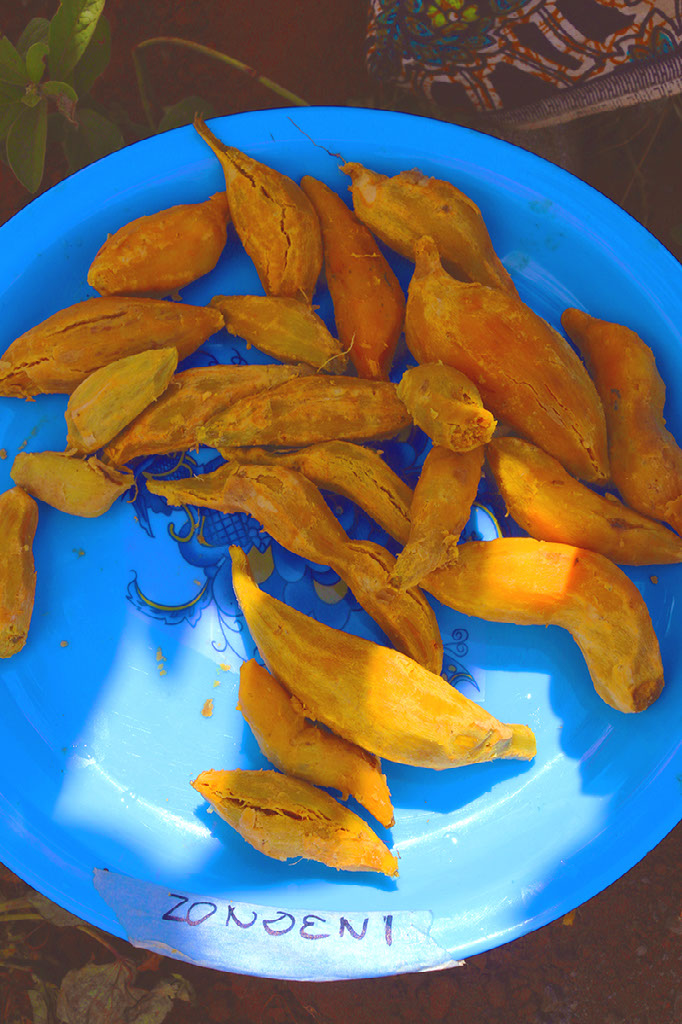
Since then, CIP has actively promoted Zondeni cultivation through an Irish-Aid-funded project called ‘Rooting Out Hunger’. Over the past 4 years, CIP has collaborated with local partners in the distribution of Zondeni planting material to over 100,000 farmers using a voucher-for-vines strategy. Many more also received Zondeni planting material through direct vine distribution programs.
In 2011, DARS released 5 new varieties that have since been multiplied and promoted in selected areas of the country. With the release of these 5 new varieties, CIP sees huge potential for OFSP production and consumption and as such has launched activities to aggressively promote the new varieties – together with Zondeni – at scale.
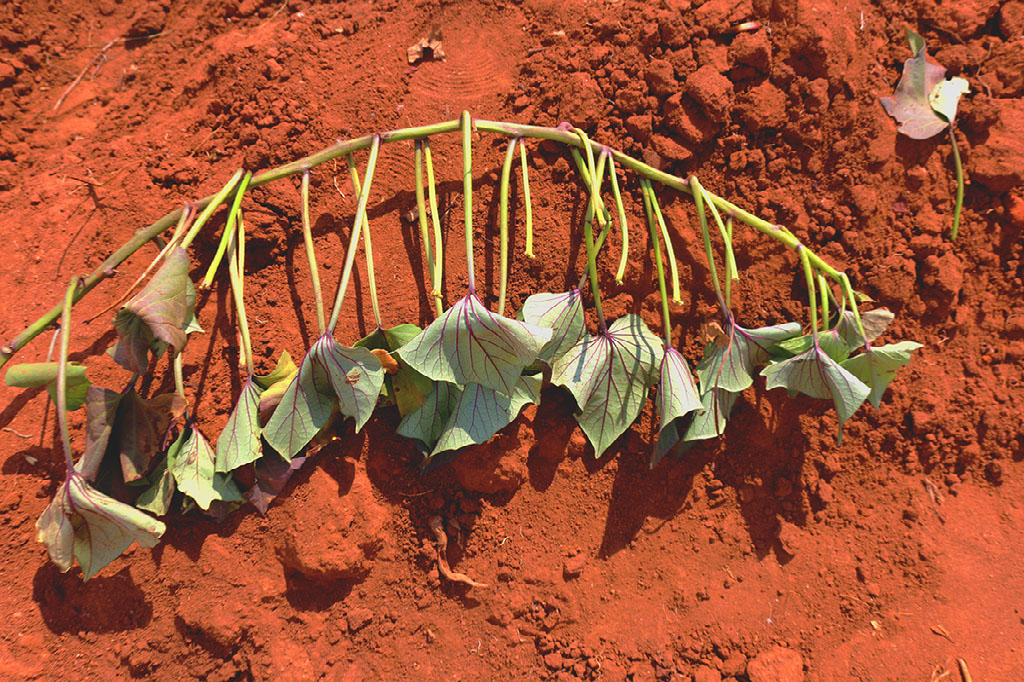
In 2014, CIP collaborated with the Department for Agricultural Research on piloting the ‘mother & baby’ approach during the winter wetland season. Following a successful pilot phase, the approach was scaled up in the summer rainy season from December 2014 to March 2015, and in the winter wetland campaign from May to June 2015.
The mother & baby approach is a simple design that consists of one central, farmer-hosted, location growing all the varieties surrounded by many farmer-hosted satellite fields that have only one variety. The host of the mother plot is a lead farmer, who works closely with researchers and extensionists to ensure uniformity amongst the varieties, allowing for visual comparison and the collection of quantitative data
The baby plots are managed by interested farmers in the same location who are clustered around the mother plot. Farmers manage the ‘babies’ as they do their current sweetpotato variety (using the same field, land preparation, cultural practices), and plant the new variety at the same time as they plant their own sweetpotatoes.
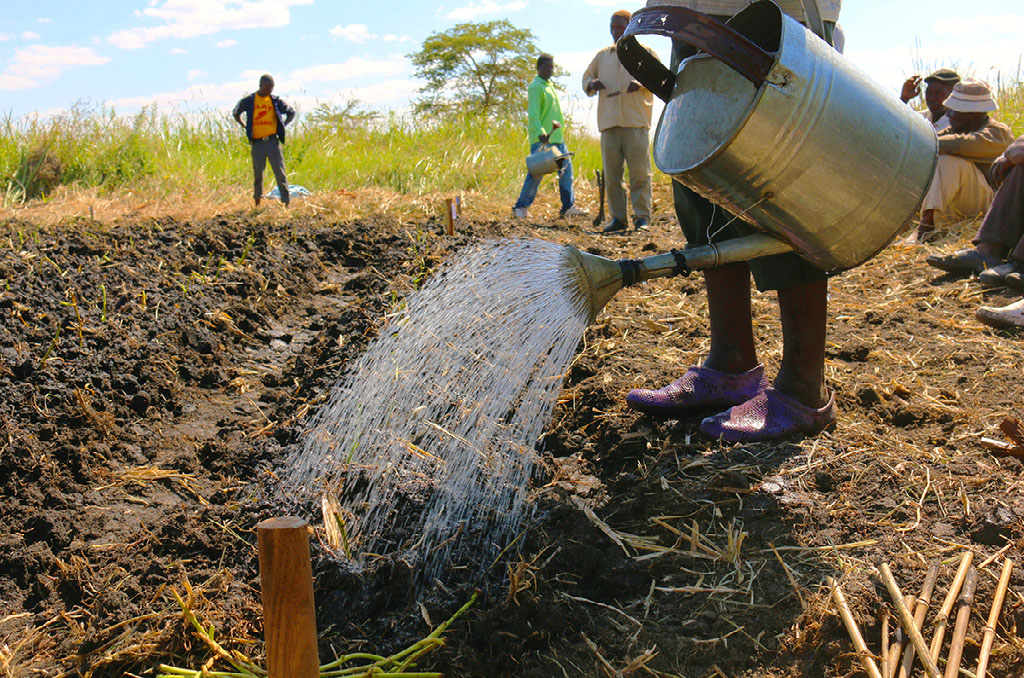
The focus of this approach is on farmer qualitative rating of the new variety compared to the variety or varieties that they usually grow. Farmers with baby plots are encouraged to visit each other and the mother plot to compare and discuss varietal performance during the growing season.
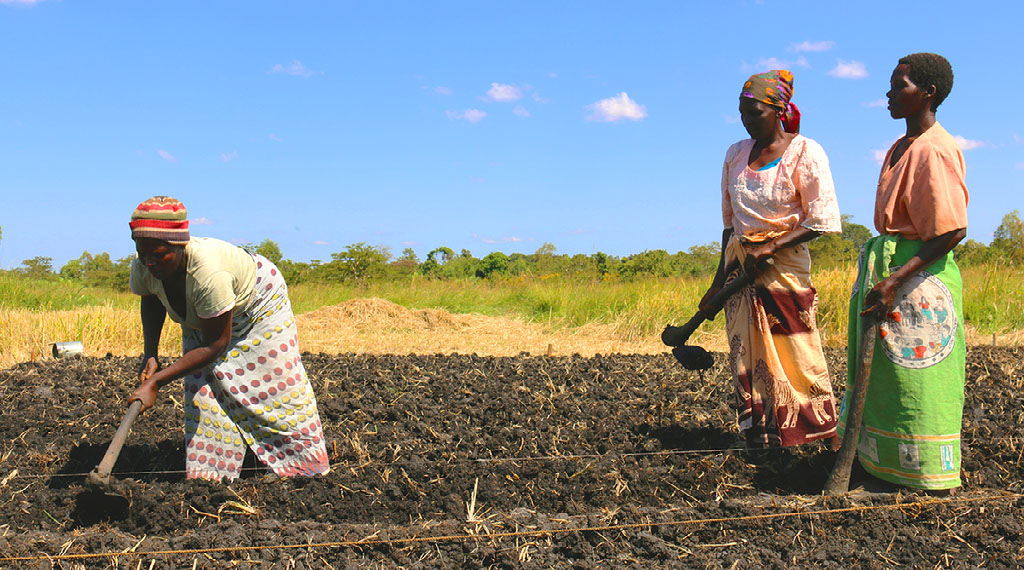
All participating farmers and anyone else who is interested are invited to field days to harvest the mother plots and discuss varietal performance and sweetpotato in general. The hosts of baby plots are also interviewed in focus groups to get detailed feedback.
Scaling up Sweetpotato through Agriculture and Nutrition (SUSTAIN) is a five-year partnership (2013-2018) coordinated by the International Potato Center (CIP) and financed by the UK Department for International Development to spread the nutrition benefits of biofortified OFSP to more farmers. The program aims to reach 1.2 million households with children under 5 years across four countries: Kenya, Malawi, Mozambique and Rwanda through mutually-reinforcing incentives to increase adoption of OFSP, consumption of Vitamin-A-rich foods, and diversification of OFSP utilization.
A photo story by Sara Quinn, Regional Communications Specialist, International Potato Center